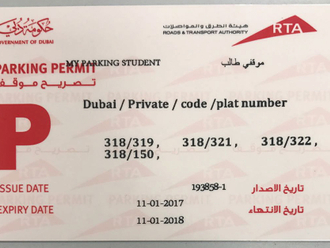Dubai: Okay, get this: in a survey conducted by Britain’s Lancaster Medical School (LMS), four in ten people were unable to pinpoint the location of the heart in the human body. Of the 20 anatomical structures shown to them by researchers, only the brain was correctly identified by all those who took part.
Similarly, a survey carried out by Prostate Cancer UK found that half of men did not know where the prostate was. Some 17 per cent did not even know they had a prostate, and only 8 per cent knew what it did.
So, what’s the big deal you may wonder. Do we all have to be experts beyond the biology class in school? And does it really matter that many people are ignorant of their anatomical components and their role in keeping our body fit and fine?
- Dr Vani Warrier | Specialist, Internal Medicine, Aster
Yes, it does, say experts in the UAE. Dr Vani Krishna Warrier, Specialist Internal Medicine, Aster Medical Centre Dubai, says, “A basic level of health literacy can be immensely helpful. It will be easier for people with a better awareness of their bodies to understand when something goes wrong in the body, allowing them to seek timely medical help.”
Dr Yasmine Maher, medical director and head of Department, Radiology, Medeor 24/7 Al Ain, says, “Understanding the parts of the human body can promote your own personal health as well as that of your family members.”
Empowered health
The UAE’s Vision 2021 National Health Agenda aims to raise the health quality standards to be among the best in the world. An important contribution towards this goal is health empowerment of every resident. And this begins with knowing our anatomy and how it works.
For one thing, say experts, this knowledge helps us to monitor our own health and make better decisions about when to access health care services. In extreme cases, experts say, it can save our lives.
Dr Adam Taylor, of the LMS, lead author of the UK research survey that was published in the journal Anatomical Sciences Education, is absolutely convinced that this knowledge is important. “If you have pain in your abdomen, it could be appendicitis, and if it is, you need to have that looked at as soon as possible because if it ruptures, it could be a life-and-death event.”
Says Dr Warrier, “A common instance [of when such knowledge comes handy] is when people experience pain in the chest. Often, it is dismissed as gas trouble. This can be dangerous, because it could be indicative of a heart attack.”
This knowledge also helps during a medical consultation. Doctors may use anatomical terms during the session and a failure by patients to understand these terms and what they signify can deeply undermine both diagnosis and effective treatment.
A lack of anatomical knowledge can also reduce the effectiveness of public health campaigns, say experts, because every campaign is dependent on the active participation and awareness levels of people and the less they are informed, the less the campaign can make its desired impact.






